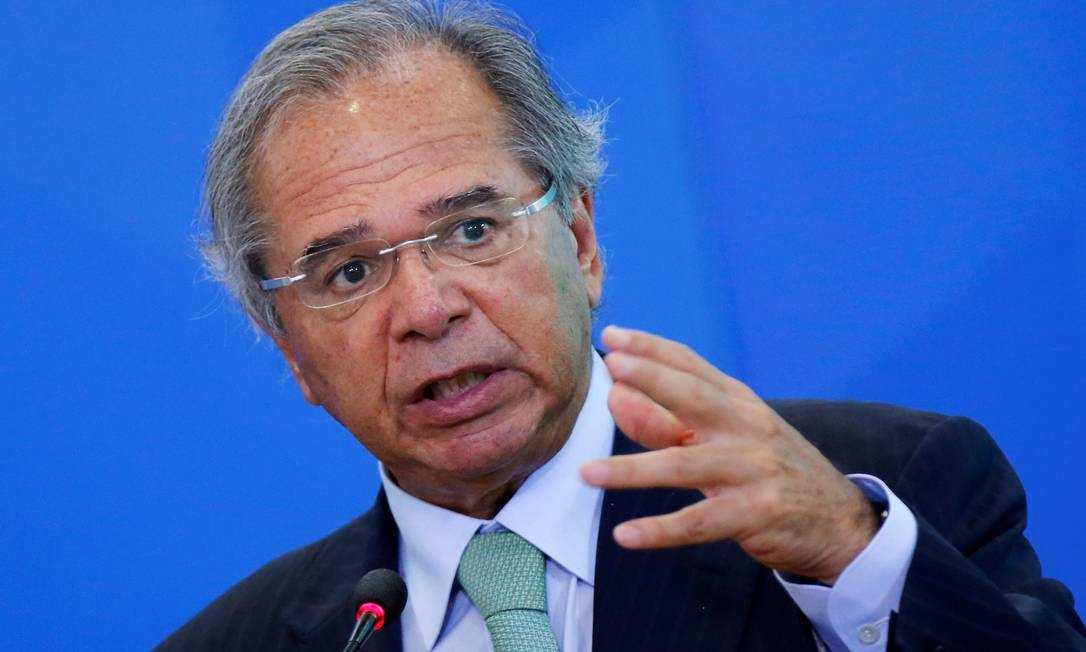RIO DE JANEIRO, BRAZIL – This week, Economy Minister Paulo Guedes said the federal government will soon launch a permanent minimum income program that would serve as a more robust version of the ‘Bolsa Família’ (Family Grant).

The matter was advocated by Guedes at a cabinet meeting on Monday and again on Tuesday. Although there are no details about the plan, its name is ready: Renda Brasil.
The intention of the Bolsonaro government to build a strong imprint in the social area, more closely associated with the prior leftist era, has gained ground amid the coronavirus pandemic. Guedes now accepts that the emergency aid will be extended for a further two months, but at a reduced amount from the current R$600.
Chamber of Deputies President Rodrigo Maia has already warned that an extension of the benefit is allowed, but the reduction in amount would need to be passed by Congress.
Unification
According to Guedes, Renda Brasil could be made viable by combining already existing benefits, such as the wage allowance, which ensures an annual minimum wage for Brazilians who receive, on average, up to two monthly minimum wages.
Other programs, such as the closed-insurance and the family allowance, also could be on the list, according to behind-the-scenes reports in the past few days. The government is also discussing tax changes to make room in the Budget, which has already committed 90 percent to obligatory spending such as Social Welfare.
On Thursday evening, Maia said in an interview with Globonews that the tax reform may enable revenue sources for a potential permanent minimum income.
Mais said this week that he agrees that existing programs are not very effective, as they “serve poorly, with a misplaced focus regarding the base of society.” However, he cautions that a permanent program cannot be built “overnight” and would require legislative changes, and possibly even constitutional amendments in certain cases.
In recent months, a huge percentage of Brazilians who are vulnerable, but do not meet the criteria required for the Bolsa Família, have become more visible. Many have had their source of income suddenly interrupted due to the isolation policies required to contain the virus.
An advantage for implementing a broader basic income project now, according to Guedes, is precisely that this once “invisible” group has been mapped by the efforts to distribute emergency aid.
“There is the formal employment system with many rights but few jobs, and there are 40 million Brazilians walking the streets without a signed worker’s record book. But now we know who they are,” the Minister said at the cabinet meeting.
Guedes added that the casual worker database will also be used in the long term in the ‘Carteira Verde-Amarela’, the Minister’s long-held conceptual project that aims to simplify the insertion of workers in the formal market by reducing labor charges and obligations.
Point for the government?
Guedes’ new plans also address the government’s drop in approval and the change in the profile of its support base. In a column in Folha newspaper this week, journalist Bruno Boghossian pointed out that out of 33 positive rating points for Bolsonaro, according to the latest Datafolha survey, almost seven points come from people who did not vote for him, but applied for emergency aid.
Christopher Garman, an American political scientist in charge of the Americas area at the Eurasia consulting company, said how much the government would gain from a hypothetical permanent income program, is more important than how much it will lose when it removes the current aid.
“He’s gaining a little bit from the emergency aid. But the question is what will happen when it is withdrawn. It could show a gain, but not enough to offset a brutal drop in assistance, with the end of the R$600,” he says.
The support scenario will be more dependent on the economy, he says. Brazil has one of the worst projections for a drop and pace of rebound among emerging economies, according to the latest figures from the World Bank.
Difficult implementation
In addition to having to endure a lengthy process to become effective, the basic income system faces an apparent lack of internal consensus within the government over the idea.
On Thursday, June 4th, the government published an ordinance transferring R$83.9 (US$17 million) from the Bolsa Família budget to the secretariat in charge of the Presidency’s media campaigns. The ordinance was eventually repealed after widespread negative repercussions and a decision by the Federal Audit Court (TCU) to investigate the relocation.
The Bolsa Família program has also been struggling since before the pandemic, with decreasing numbers receiving the benefit, including people who fit the criteria. There is a drop in the number of beneficiaries, particularly in the poorest regions of the country, as shown in the Folha report based on figures released by the Ministry of Citizenship under the Access to Information Law. Before thinking about a broad redesign, many people think it is more important to make the existing one operate properly.
Source: Exame

